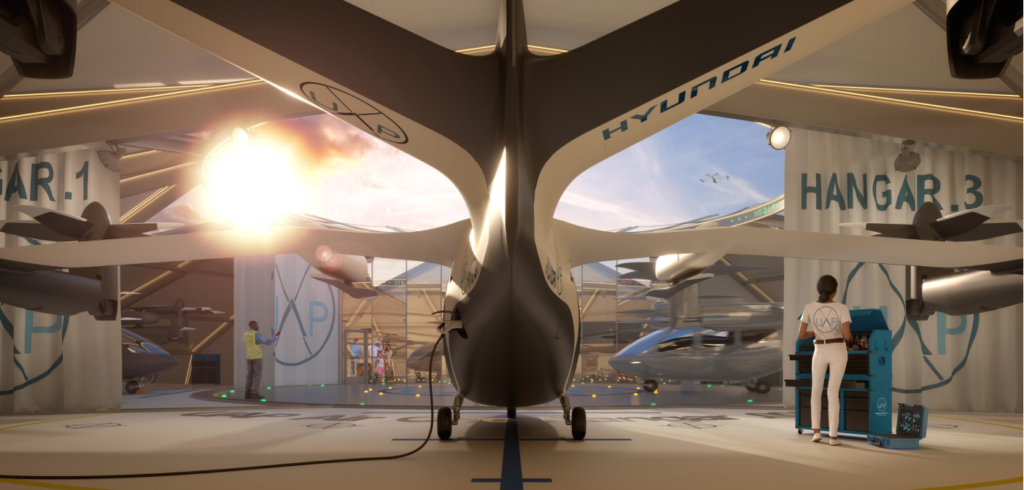UK startup Urban-Air Port has announced plans with the urban air mobility division of Hyundai Motor Group to develop 65 electric urban-air ports worldwide to meet growing demand for autonomous airborne drones and electric vertical take-off and landing (eVTOL) passenger vehicles.
Hyundai, which is developing its own eVTOL vehicle, will work with Urban-Air Port to develop the sites in key locations across the USA, UK, Europe and Asia Pacific.
Longer term, the partnership aims to establish a global network of urban-air ports, with 200 sites to be built globally in the next five years. The world’s first fully operational urban-air port – named Air-One – will be unveiled early next year in Coventry, UK.
Ricky Sandhu, founder and executive chairman of Urban-Air Port, said: “The sector is soaring and we know that a future with electric flying vehicles and drones in cities is going to be a reality soon. But it can’t happen if we don’t have the infrastructure on the ground and in the air to make it happen.
“The deal with the urban air mobility division of Hyundai Motor Group is a massive step towards our vision of installing hundreds of urban-air ports worldwide to maintain our position at the forefront of this sector and support the rapid expansion of urban air mobility in this decade.”

Urban-Air Port’s modular hubs are specifically designed for compact environments, supporting eVTOL and drone vehicles, and with maintenance and charging able to take place on-site. The ultra-compact off-grid design should enable urban-air ports to be located in dense urban areas and remote locations and can be moved to alternative sites.
The design also means the sites are suitable for disaster emergency management, such as natural disasters. Urban-air ports can deploy drones and other eVTOL vehicles to collect and transport emergency supplies, equipment and people.
To support this, Urban-Air Port has established a partnership with hydrogen fuel-cell company AFC Energy to provide zero-emission off-grid power for future sites. The system will also be deployed at the Air-One site in Coventry.
Urban-Air Port is also designed as an integrated hub for sustainable transport, including EVs, buses and scooters, where cargo and passengers can be loaded and unloaded, integrating with onward transport, while the vehicles can access on-site charging. A digital app-based platform is currently in development to enable door-to-door travel.
UK minister for aerospace, Paul Scully, said: “The government-backed Urban-Air Port heralds a new, convenient and sustainable way to travel within the UK, improving connectivity between cities, whilst helping us to build back greener.
“The UK is at the cutting-edge of new technologies in the pursuit of a net zero economy by 2050. Making sure that the infrastructure exists for these new modes of transport is key to making zero-emission urban flight an everyday reality.”




